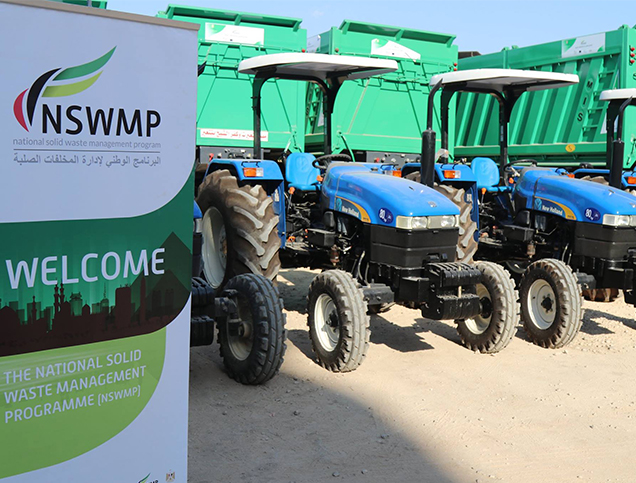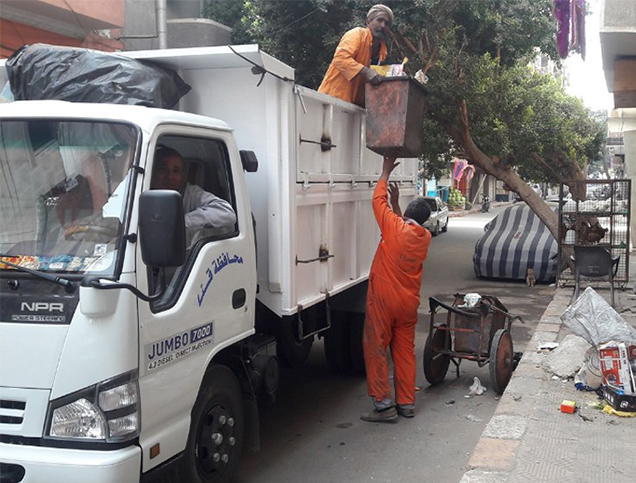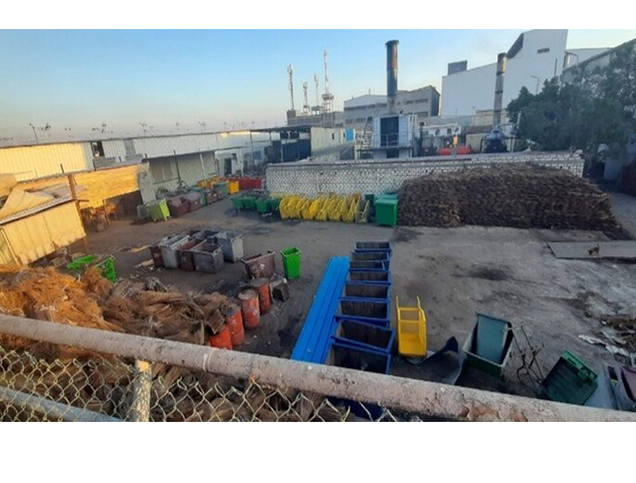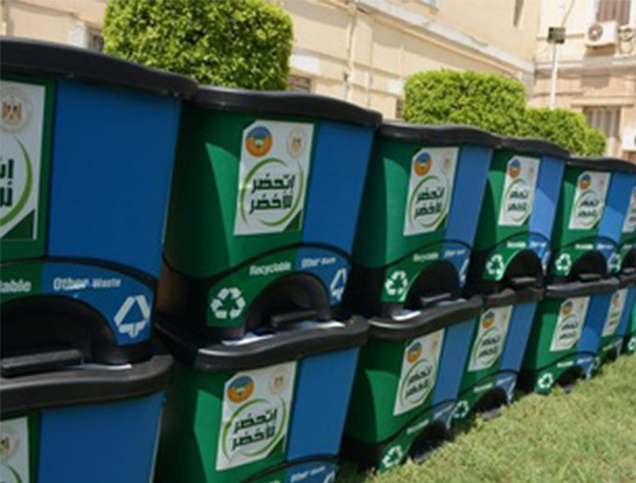
Close

Approach Words: Environment Preservation, Sustainability, Urban Livability
Public Policy Instruments: Communicative, Financial Mechanism, Organization, Physical Intervention, Planning, Regulatory
The National Solid Waste Management Programme (NSWMP) is a transformative development initiative launched in 2017 to establish an integrated and sustainable waste management system across Egypt,1 addressing urban and rural needs with unique focus on environmental protection along with socio-economic inclusion.2
The NSWMP aims to revolutionize Egypt’s waste management sector by promoting circular economy, reducing environmental degradation, and supporting socio-economic development. It seeks to improve waste infrastructure and integrate private sector engagement, community participation, and renewable energy technologies.3 It envisions to create an “integrated, sustainable waste management system that protects public health, safeguards the environment, and fosters inclusive green economic growth through sustainable practices and institutional reform”.4 The NSWMP initiative operates across 11 governorates, benefiting over 30 million citizens.5

Title: Equipment for new recycling locations under the supervision of the National Solid Waste Management Program.
Source: Click Here

Title: Traditional methods of collecting bins and the government's efforts to extend the effectiveness of the project to cover Upper Egypt.
Source: Click Here

Title: Construction of new recycling facilities aimed at transforming from a linear, resource- and climate-intensive economy into a circular economy.
Source: Click Here

Title: Distribution of new collection bins across Egypt to promote the strategy of proper waste collection.
Source: Click Here
To implement this vision, the initiative applies a national master plan supported by four pillars, policy reform, capacity building, public-private partnerships, and community engagement strategies. It is a flagship project under the EU-Egypt Climate Action Cooperation, aligned with Egypt’s Vision 2030 and the EU’s Green Economy Partnership.6
The nationwide master plan encompasses:
The programme emphasizes sustainability, inclusivity, and advanced technology (e.g., solar energy, biogas) integrating renewable energy and waste-to-resource with traditional, community-led waste practices, valuing local ownership, gender inclusion, and economic empowerment of informal workers.13

Owner/Developer (Public)

Consultant/Designer

Contractor/Implementer
Led by Egypt’s Ministry of Environment, the NSWMP is co-funded by the EU (€90 million) and the German Federal Ministry for Economic Cooperation and Development (BMZ) (€15 million).14
Implementation partners include GIZ, Chemonics, and local municipalities.15 The project follows three phases:
Project Link
https://www.giz.de/en/worldwide/123415.html
Endnotes
N.A.
References